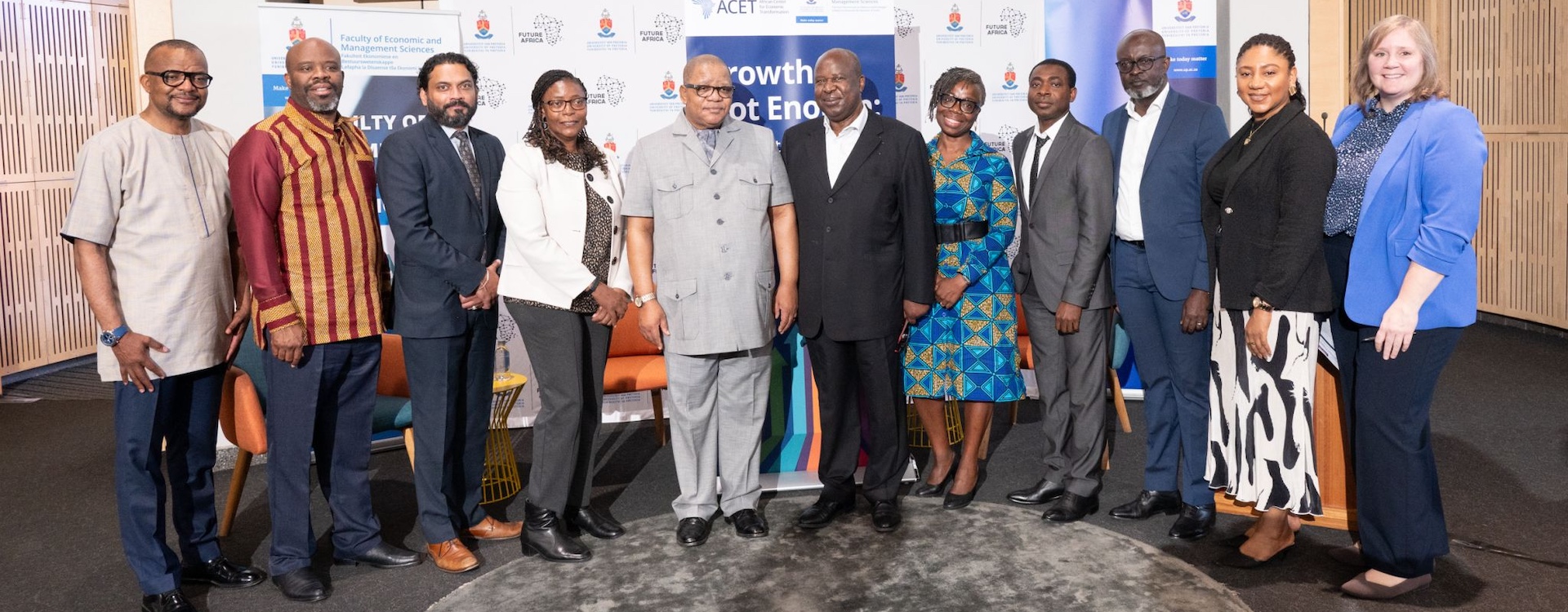African Futures Conference 2024

Forecasting Development Trends and Opportunities
-
Date: 29 October 2024
-
Time: GMT+2 10:00 am – 17:00 pm.
-
Venue: Zoom with break-out rooms. Keynote streamed to YouTube and Facebook
Overview
As Africa undergoes rapid transformations, it faces complex challenges, necessitating the need for effective forecasting and strategic planning tools and initiatives. The African Futures Conference offers an opportunity for experts and stakeholders across disciplines to present their work and research findings to a wide audience, catalysing discussions, fostering collaborations, and generating actionable insights.
The event will facilitate knowledge sharing, collaboration, and networking among experts in the field by leveraging quantitative and qualitative methods and techniques.
Participants will have the opportunity to present and explore the future trajectories of various aspects of African development, including but not limited to politics, education, environment, energy transitions and social dynamics.
Key Themes:
-
Political Forecasting: Anticipating Political Transitions, Governance Dynamics, and Stability.
-
Education Forecasting: Anticipating Trends in Education Systems, Skills Development, and access to education.
-
Work Forecasting: Predicting Labor Market Dynamics, Employment Patterns, and the Future of Work in Africa.
-
Environment Forecasting: Assessing Climate Change Impacts, Biodiversity Loss, and Sustainable Natural Resource Management Strategies.
-
Energy Transitions: Forecasting Energy Demand, Renewable Energy Adoption, and Transition Pathways for Sustainable Energy Access.
-
Social Forecasting: Understanding Demographic Shifts, Urbanization Patterns, the role of Policies in enhancing a Demographic Dividend, etc.
-
Global forecasting: Understanding how global trends, including power politics, impact Africa, such as US/China relations, investment flows, loans, aid, migration flows and other dynamics.
-
Geographic forecasting: Cross-cutting forecast/scenario that relates to a particular African country or region.
Format: The conference will feature a set of thought-provoking keynotes on the future of Africa followed by several break-out sessions. Break-out sessions will provide an opportunity to present best practices and case studies where foresight analysis is used to inform decision-making. Additional sessions will cover thought-provoking presentations on using foresight analyses to unpack the future development trajectory of Africa, covering the themes above. Each break-out session will feature +/-3 presentations, followed by a discussion and be 90 minutes long. Presenters will have a maximum of 15 minutes to address the audience.
Audience: The conference targets policymakers, researchers, academics, practitioners, civil society representatives, and students who are interested in understanding Africa's possible future.
Outcomes:
-
Enhanced understanding of current forecasting methodologies and techniques applicable to African contexts.
-
Identification of emerging trends, opportunities, and challenges shaping the future of Africa.
-
Establishment of a network of practitioners involved in forecasting African development, facilitating future collaboration and knowledge exchange.
-
Generation of insights and recommendations to inform policy, research, and practice aimed at promoting sustainable development and resilience across the continent.
Call for contributions: Practitioners, researchers, and experts interested in sharing their insights and expertise are encouraged to submit brief proposals highlighting innovative approaches, case studies, and best practices in forecasting African development trends. The conference invites submissions of abstracts (250 words) and expressions of interest in one of two categories.
- First track: Submit an expression of interest to become one of our keynotes.
- Second track: Submit a case study or best practice abstract on the use of foresight analysis, methodologies or tools. The case study can feature a country or study that used foresight analysis to generate policy advice and inform decision-making. Please indicate in which of the eight key themes your presentation would fall.
Closing date for submissions: The closing date for submissions is July 12th, 2024. Contributions can be submitted through the online registration form. Contributors will be emailed with the outcome of their submission by July 31st, 2024.
Please contact [email protected] (copy: [email protected]) for additional information.
More to explore

19 Apr 2024
The Future(s) of Africa - Institute for Security Studies
Jakkie Cilliers and Fonteh Akum discuss their research about the future of African development.

20 May 2024
Growth is Not Enough: A Summit on Economic Transformation
This event focused on discussing the findings of ACET’s 2023 African Transformation Index and exploring pathways for policy development.

25 Aug 2023
Erudite Series on the future of Africa: Leapfrogging
The impact of leapfrogging and large infrastructure build on Africa’s development potential

23 Aug 2023
At a crossroads: global setbacks for Africa’s development future
Global events, including the Ukraine war, are widening the gap between Africa’s development path and the rest of the world.